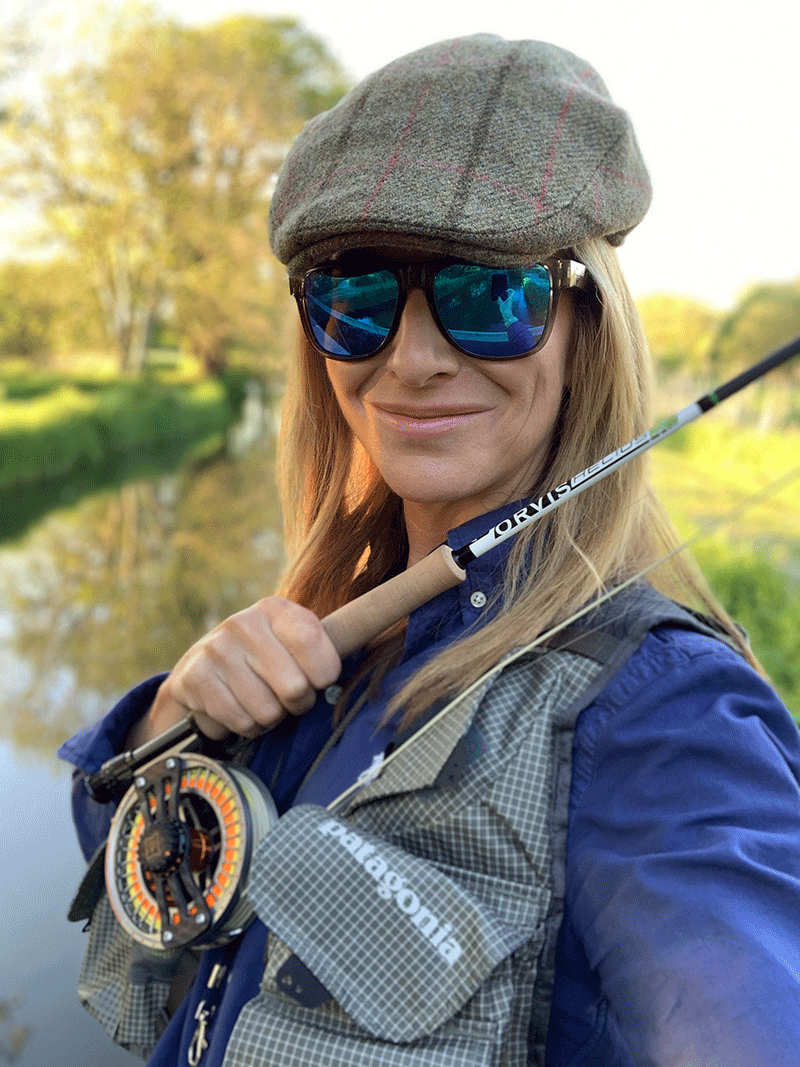This website uses cookies so that we can provide you with the best user experience possible. Cookie information is stored in your browser and performs functions such as recognising you when you return to our website and helping our team to understand which sections of the website you find most interesting and useful.
Beaky Allesch-Taylor shares the joys – and wellness benefits – of British fishing
By Beaky Allesch-Taylor | 19 May 2020 | Sport
A popular pastime of world leaders, UK angling has become a lifeline to fishing fanatics looking to unwind

A number of US presidents have counted fly fishing as a pastime. Franklin D Roosevelt, Jimmy Carter, George Bush Senior, Dwight D Eisenhower and Barack Obama all enjoyed casting a line over a river, with some of these men enjoying the chalkstreams that England has to offer. Grover Cleveland, the 22nd and 24th president of the United States was an avid fisherman, stating that he considered these excursions a duty, as he was able to obtain exercise and release from mental strain. In these strange and uncertain times of the Covid-19 pandemic, finding a way to clear your mind and ease anxiety has never been more important.
Boris Johnson recently announced the resumption of outdoor activities including angling, a statement that the Angling Trust warmly welcomed after weeks of campaigning for fishing to be at the front of the queue when restrictions were reviewed. A report written by them acknowledged that we will be ‘facing an unprecedented national mental health emergency as a result of the current pandemic.’ Not only is angling largely a solitary sport making it ideal for social distancing, but “it has proven positive benefits for both physical health and mental wellbeing.” Can there be a more perfect sport for right now?
My own introduction to fishing was at the age of seven. My mother had recently married my stepfather, a man only really happy when wearing waterproofs and standing chest deep in a river. He booked their honeymoon, a week of seatrout fishing at night in Wales, taken a week before the wedding itself. Luckily for him, my mother caught a seven-pound seatrout, and so their nuptials went ahead. At this stage of my life, my enthusiasm for fishing was almost non-existent other than the fact I liked the picnics taken on the riverbank. No other activity allowed me to eat three kit kats and call it lunch. I don’t remember being taught how to cast, I must have picked it up along the way, landing my first salmon in Scotland at around the age of eight.
Our summer holidays were spent on the West Coast of Scotland, two weeks of exploring acres of wild and dramatic postcard worthy landscape, unaccompanied by an adult. My parents fished the nearby river which gave us a remarkable amount of freedom, our presence only being required on their return each evening. My stepfather passed away when I was 18. My mother sprinkled his ashes in the River Itchen where they first met. As the ashes briefly settled on the surface, an unassuming trout rose and in a single gulp my father was gone: a trout had eaten my dad. >>
Related: Discover the best golf destinations around the world
I didn’t fish for a while after that, I moved to London, and focused my attention on work and socialising, rarely getting out to the countryside. But as I have got older my love of fishing has returned. I started to appreciate the distraction that it brings and although I baulk at the word mindfulness, it brought me some of that too. I equipped myself with a brand new fishing rod and booked myself a day on The Test. With a hazy memory of the technical details I somehow managed to land several trout that day and I fell truly in love with sport again.
Despite the solitary nature of this meditative activity, the people you do meet are often happy to share their fishy knowledge. I have learnt so much from talking to other flyfishers. Their generosity has often led to a particular cast being ironed out, the correct fly being chosen or a tricky knot being mastered. There seems to be an etiquette amongst fly fishers, they are only too pleased to help a struggling fellow fisherman. Those that have a love for it want to encourage other people to love it too, they want to pass their enthusiasm on. It is also a sport that can be enjoyed by anyone, of any age, any sex, it is not discriminatory, but its benefits are widespread. For a start it is a fantastic form of exercise.
I am inherently lazy and usually have to be enticed out on a walk with the promise of a pub lunch as the destination. But when I’m fishing, I don’t even notice the miles that I cover. If I’m not stalking a fish I’m enjoying the surrounding countryside, I have never fished anywhere ugly. For me fishing is a form of problem solving and makes me focus. It can be challenging, working out what the fish are feeding on that particular day, trying to match the fly at the end of your line to the fly of choice that the fish are gorging on. But the real benefit for me is the calm that I feel when I am by a river. Since fishing began it has been touted as an activity that promotes emotional calm and mental wellbeing. It is almost impossible to feel anxious when you are focussed on catching a fish. Flowing water has a hypnotic effect, seemingly taking my worries with it.
As we come out of this pandemic, countless people will be re-evaluating their lives, searching for a way to cope with the changes it has brought about. I urge you to try your hand at fly fishing. Perhaps I should visit Boris at Chequers, his country residence and my old ancestral home. I’d have just one question for him: when are you coming fishing with me?
Follow Beaky’s fishing adventures on Instagram & Twitter: @BeakyFishes







